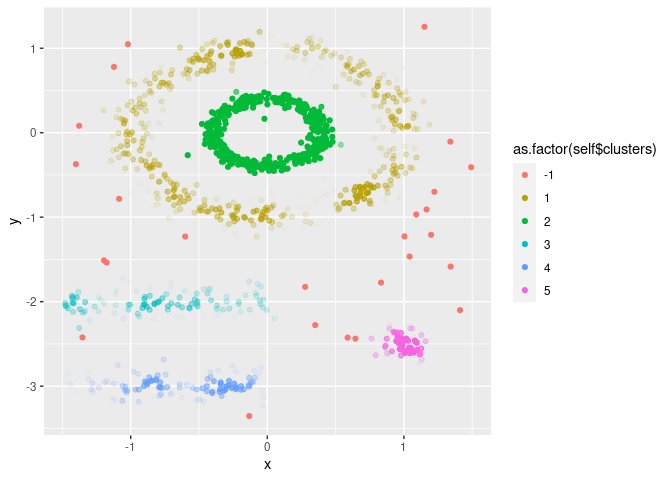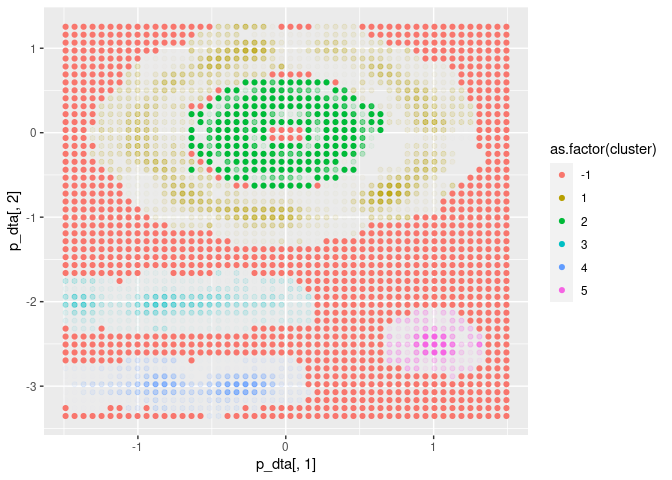Run and Predict a Fuzzy DBScan.
FuzzyDBScan
This package implements fuzzy DBScan with fuzzy core and fuzzy border. Therefore, it provides a method to initialize and run the algorithm and a function to predict new data w.t.h. of R6. The package is build upon the paper “Fuzzy Extensions of the DBScan algorithm” from Dino Ienco and Gloria Bordogna. The predict function assigns new data based on the same criteria as the algorithm itself. However, the prediction function freezes the algorithm to preserve the trained cluster structure and treats each new prediction object individually.
Installation
You can install the development version of FuzzyDBScan from GitHub with:
# install.packages("devtools")
devtools::install_github("henrifnk/FuzzyDBScan")
Example
The following example shows how Fuzzy DBScan works with the multishapes data set from the factoextra package. We set the range of $\epsilon \in [0, 0.2]$. Note that setting $\epsilon_{min} = 0$ implies that we expect fuzzieness through the entire core. The range of neighbors is set to the interval of $[3, 15]$ where $pts_{min} = 3$ means that we need at least three points to detect a fuzzy core point.
library(factoextra)
dta = multishapes[, 1:2]
eps = c(0, 0.2)
pts = c(3, 15)
Next, we train the DBScan based on dta, eps and pts. This is done by initializing the R6 object. FuzzyDBScan contains a scatterplot method, where the clusters (colours) and fuzzieness (transparency) are plotted for any two features.
library(FuzzyDBScan)
cl = FuzzyDBScan$new(dta, eps, pts)
cl$plot("x", "y")

FuzzyDBScan is equipped with a prediction method. This method freezes the algorithm such that new data points are not used for updating the cluster structure itself.<s Each new data point is then assigned a cluster and fuzziness individually by the same rules as during training.
x <- seq(min(dta$x), max(dta$x), length.out = 50)
y <- seq(min(dta$y), max(dta$y), length.out = 50)
p_dta = expand.grid(x = x, y = y)
p = cl$predict(p_dta, FALSE)
ggplot(p, aes(x = p_dta[, 1], y = p_dta[, 2], colour = as.factor(cluster))) +
geom_point(alpha = p$dense)

Reference
- Ienco, Dino, and Gloria Bordogna. Fuzzy extensions of the DBScan clustering algorithm. Soft Computing 22.5 (2018): 1719-1730.